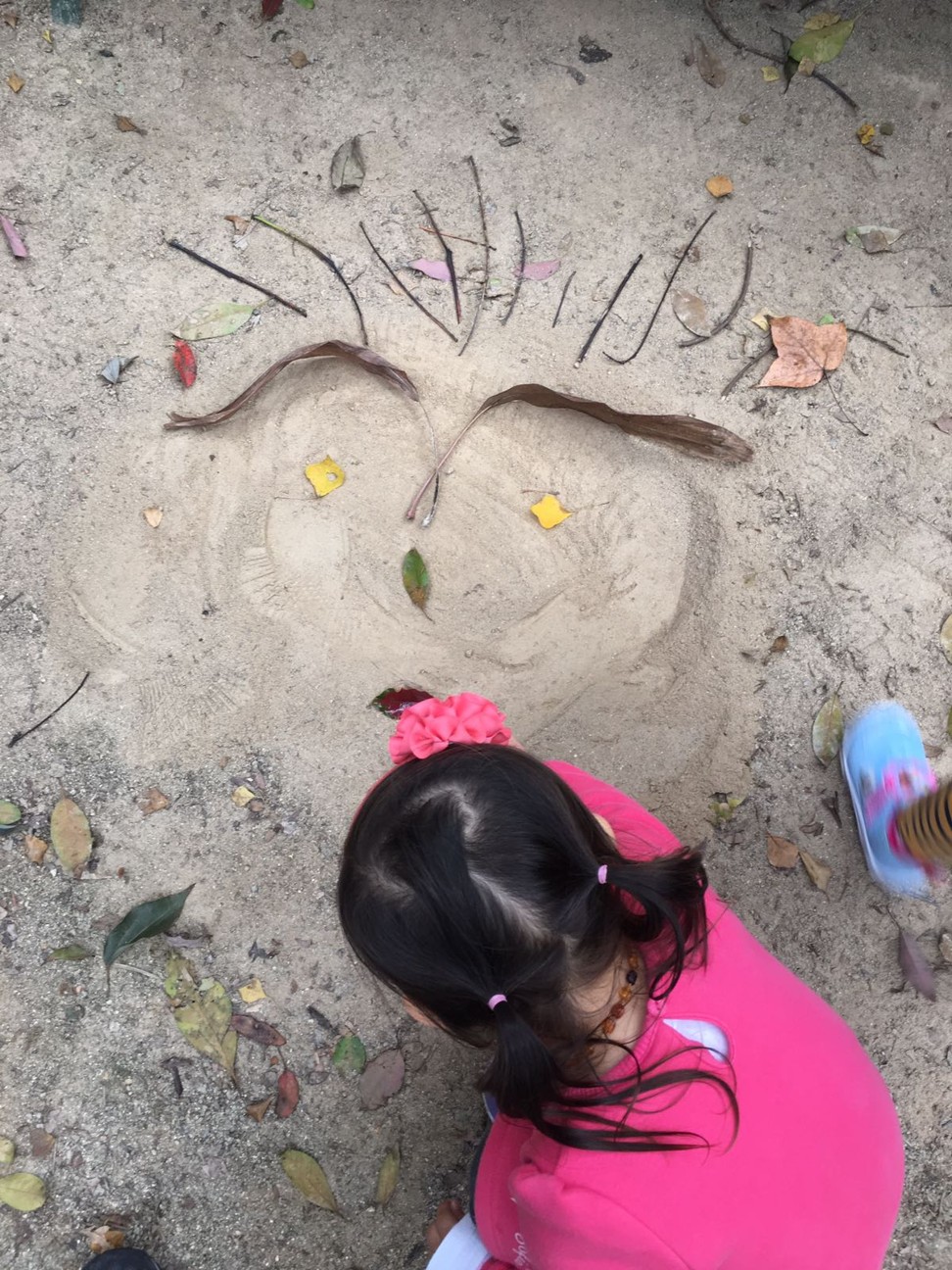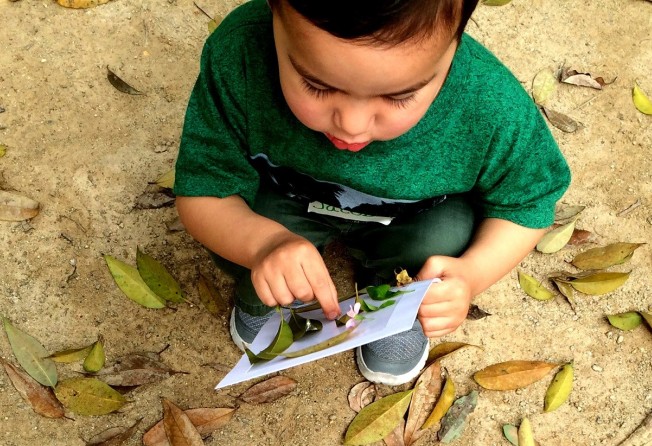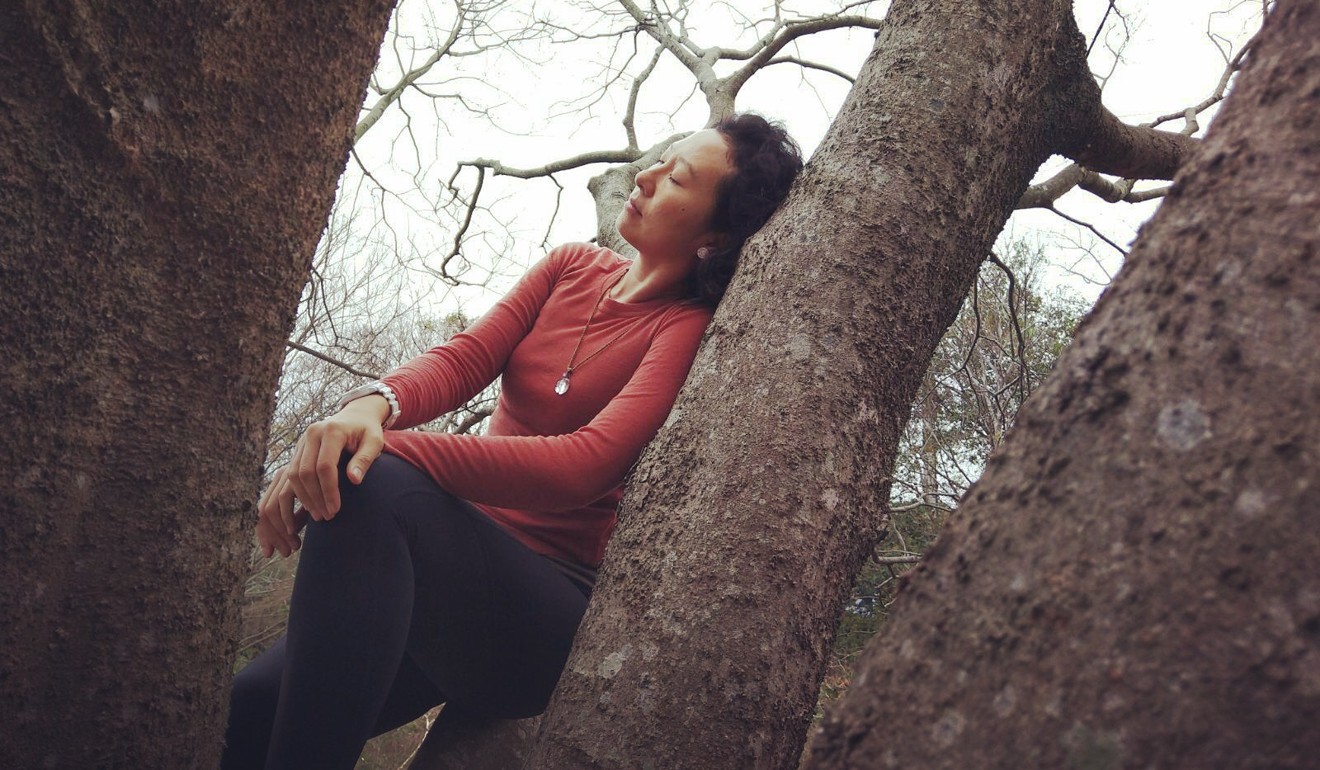
Forest bathing, kids in green spaces – health benefits of being close to nature shown in Hong Kong programmes
- HKU research with Hong Kong families shows preschool children who spend time in nature are less distressed or hyperactive than those who don’t
- Former lawyer who discovered the health benefits of being in nature while fighting cancer leads forest bathing sessions to help people reconnect with nature

Finding ways to reconnect with nature is a major issue in the modern world as a growing number of studies show how an urban environment creates “child-nature disconnectedness”.
In highly urbanised Hong Kong, young children are often stressed and depressed, with 16 per cent of pre-schoolers in the city showing signs of mental health problems, according to research. In China the figure is as high as 22 per cent.
And if a United Nations report on global urbanisation is to be believed, the future looks bleak. By 2050, 66 per cent of the world’s population is projected to live in cities.
The World Health Organisation recommends every child has access to “green spaces to play and undertake physical activity”; it says these spaces should be within 300 metres of where a child lives. In Hong Kong, 90 per cent of the population lives within 400 metres of green spaces, says a study by the University of Hong Kong (HKU), but families are not making use of them.

“We noticed that parents are avoiding nature,” says Dr Tanja Sobko from the School of Biological Sciences at HKU. “They perceive it as dirty and dangerous, and their children unfortunately pick up these attitudes. And the green areas are often unwelcoming, with signs like ‘Keep off the grass’.”
This spurred Sobko and collaborator Professor Gavin Brown, from the University of Auckland in New Zealand, to create a way to measure preschool children’s connectedness to nature.
To gauge this, the pair developed a 16-item parent questionnaire. It identifies four areas that reflect the child’s relationship with nature: enjoyment of nature, empathy for nature, responsibility towards nature, and awareness of nature. A total of 493 families with children aged between two and five took part in the study.

The survey showed that parents whose children had a closer connection with nature had less distress and hyperactivity, fewer behavioural and emotional difficulties, and better pro-social behaviour (meaning voluntary behaviour intended to benefit others). Children who felt a greater responsibility towards nature had fewer difficulties with their peers.
The results provide new insights into the link between the outdoor environment and well-being in preschool children.
The study is part of Sobko’s research-based programme Play&Grow, the first in Hong Kong to promote healthy eating and active playtime for preschool children by connecting them to nature. Launched in 2016, it has so far covered about 1,000 families citywide.
Sobko says the next step is to test the effect of exposing children to nature and changes in their gut microbiota (the community of microbes in the human intestine whose composition affects digestion, our immune system and vitamin production).
Hongkonger Amanda Yik knows the benefits of being close to nature. She has always loved being outdoors, but it was in 2014, while undergoing cancer treatment, that she discovered the health benefits of being in nature.

“My grandfather and father are both nature lovers, and I have fond memories of country park visits as a young child,” says the 41-year-old.
“When I got older I’d spend weekends hiking and ocean paddling, which later became more strenuous pursuits in the form of overseas climbing expeditions and canoeing races. Nature never fails to inspire me.”
But when she discovered she had stage 3 ovarian cancer she found herself battling extreme fatigue and discomfort. “I’d sit for most of the day, only able to take short strolls in a nearby park. These walks became the highlight of my day.”

It was during this time that Yik stumbled upon forest bathing, a Japanese tradition, also known as shinrin yoku, that involves taking in the calming atmosphere of a forest.
It doesn’t require exercise, or hiking, or jogging, but simply being in nature, and it’s been shown scientifically to improve health and well-being.
A large number of studies of the practice have been done. In 2018, research in the journal Environmental Research by the University of East Anglia in Britain looked at a collection of studies (150 in total) that tracked a whopping 290 million participants from 20 countries.
It found that people who spend more time in green spaces have reduced risks for a number of chronic illnesses, reduced risk of coronary heart disease, lower blood pressure, lower cholesterol, and reduced risk of type 2 diabetes.
There are probably several mechanisms behind the connection, but one of the more fascinating ones likely has something to do with the phytochemicals that trees emit, and which humans breathe in.
“Much of the literature on forest bathing suggests that phytoncides [volatile organic compounds with antibacterial properties] released by trees may explain the [health benefits] of shinrin yoku [forest bathing],” the authors write.
It’s not surprising that a large number of the studies analysed – 24 – were conducted in Japan. It’s been ahead of the forest bathing game for decades (in 1982 it included shinrin yoku in its national health programme).
View this post on InstagramA post shared by Shinrin Yoku Hong Kong 香港森林浴 (@shinrinyokuhk) on Sep 9, 2018 at 11:15pm PDT
Forest bathing is only starting to gain global traction; mainstream media recently published reports about it when Britain’s Duchess of Cambridge, Kate Middleton, said she was a fan (the practise is the inspiration for her entry in May’s Chelsea Flower Show, an annual garden show held in London).
Yik says: “When I read more about forest bathing I realised how close it was to what I’ve been experiencing in my short walks in the parks.”
To learn more, she signed up for forest bathing training with the Association of Nature and Forest Therapy Guides and Programs in the US, and for the past 18 months has been applying that knowledge on guided walks in Hong Kong through her organisation Shinrin Yoku Hong Kong.
View this post on InstagramA post shared by Shinrin Yoku Hong Kong 香港森林浴 (@shinrinyokuhk) on Jan 30, 2019 at 6:45pm PST
Her next forest bathing event is on February 9 at Lung Fu Shan Country Park in the Central and Western District of Hong Kong.
This two-and-a-half hour session costs HK$300, including “healthy snacks and local organic tea”. Yik says the benefits go beyond the physical; each session draws on her two decades of combined experience in yoga, tai chi and mindfulness practice and taps into her previous experience as a commercial lawyer and a senior corporate responsibility manager for an NGO.
“A guided forest bathing experience opens up fresh insights,” says Yik. “It’s an opportunity for quiet reflection and helps participants gain a better understanding of themselves and their relationship with others.”
Yik says it also helps people tap into a wider range of intuitive and rational abilities such as better sharing and listening skills, improves self-confidence and self-awareness, and enhances their creativity and problem solving.